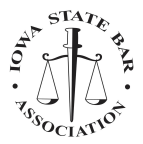Falls in nursing homes result in many injures. Because falls can be devastating for elderly residents who are at higher risk for broken bones, infections and the like, it is important to recognize some of the common causes to prevent falls from happening in the first place.
Nursing homes have a legal obligation to minimize hazards to protect their residents. Hazards such as unoccupied wheelchairs or food service carts in hallways or objects such as oxygen tanks or other medical devices not properly put away in residents’ rooms can create a fall hazards. Many nursing home residents suffer from visual impairment and may struggle with balance, so any unexpected obstacles can result falls.
Improper use or fitting of equipment can result in falls also. For example, a bed guard rail that is set too low or not engaged at all can result in falls from a bed resulting in injury. Wheelchairs and walkers not properly fitted to a patient can be hazardous for someone who is already struggling with mobility. It is important that equipment is well suited to the resident, are well maintained, and that procedures are followed to prevent fall injuries.
Many of the medications provided to nursing home residents can have side effects including dizziness and drowsiness, which can cause falls if precautions are not taken. When administering medications, especially new ones that a patient may not be used to, it is important to provide adequate oversight to prevent falls. Nursing home residents are often vulnerable and dependent on the care of staff, who must be alert to potential threats to the health and safety of residents in their care.
Of course, many residents require mobility assistance to move about a nursing home or to attend to appointments outside of the facility. Unfortunately, errors in transferring residents correlate to nursing home falls. A failure to secure equipment, call for a second staff member when needed, and other mistakes while transferring nursing home residents can result in falls and serious injuries. Training and supervision is key to preventing transferring injuries from occurring.
When your family member is injured in a preventable fall at a nursing home facility, it is important to speak with knowledgeable legal help as quickly as possible. Iowa nursing home injury and abuse lawyer Marc A. Humphrey is dedicated to obtaining justice and compensation for your loved from negligent nursing homes. To schedule an appointment, contact us by email or give us a call at 515-331-3510. All cases are taken on a contingency fee – which means you pay for nothing until we win at trial or settle on your terms.






